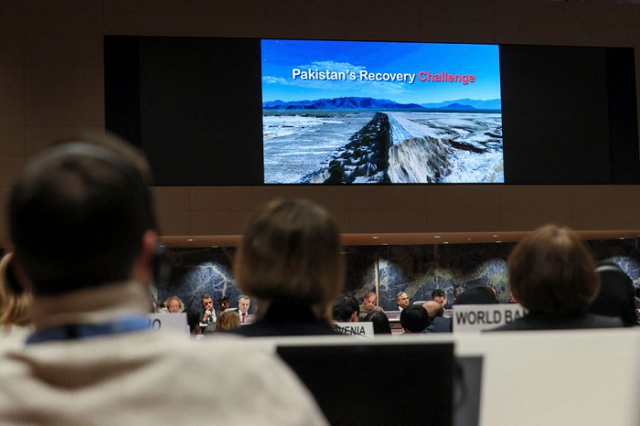Reforms urged for climate resilience
Speakers ask Pakistan to safeguard its climate-vulnerable communities

Speakers at a webinar acknowledged that it is unlikely that all $10 billion will be given at once for Pakistan’s post-flood recovery and rehabilitation, therefore, Pakistan needs to opt for institutional and governance reforms to combat the challenges of climate change in the long run.
The online discussion on “Geneva’s roadmap for a climate resilient Pakistan” was organised by the Development Communications Network (Devcom-Pakistan) on Saturday.
The climate change expert Ali Tauqeer Sheikh was the keynote speaker.
The subject was introduced by Devcom-Pakistan Executive Director and a well-known climate advocacy expert Munir Ahmed.
He said that the UN and Pakistan co-hosted the ‘International Conference on Climate Resilient Pakistan’ on January 9 at Geneva to present a $31.2 billion “Resilient Recovery, Rehabilitation, and Reconstruction Framework (4RF)”, which laid out a multi-sectoral strategy for rehabilitation and reconstruction in a climate-resilient and inclusive manner. Moreover, another key objective was to secure international support and forge long-term partnerships for building Pakistan’s climate resilience and adaptation.
Munir Ahmed said it was the first ever UN donor conference held in Geneva to raise funds for any country which is why Pakistan needs to act wisely to safeguard its climate-vulnerable communities with a stronger local governance system.
Ali Tauqeer Sheikh said that “Resilient development is not possible without institutional reforms. The urgency is staring us in the face with a current price tag of eight per cent GDP loss and projected GDP shrinking of 20 per cent by 2050. In fact, resilience, reforms, and economic development have become intrinsically linked.”
Pakistan’s existing political and economic systems breed climate vulnerability, which is made worse by food and water insecurity, degraded land, and polluted air. The proposition is relatively straightforward such that a higher degree of preparedness can help us avoid public and private losses from climate-induced disasters and saved resources can be invested in climate-smart development, he added.
He said that the first target is to build political consensus and aware them that reforms for climate security are essential and cannot be postponed any longer.
Published in The Express Tribune, January 15th, 2023.



















COMMENTS
Comments are moderated and generally will be posted if they are on-topic and not abusive.
For more information, please see our Comments FAQ